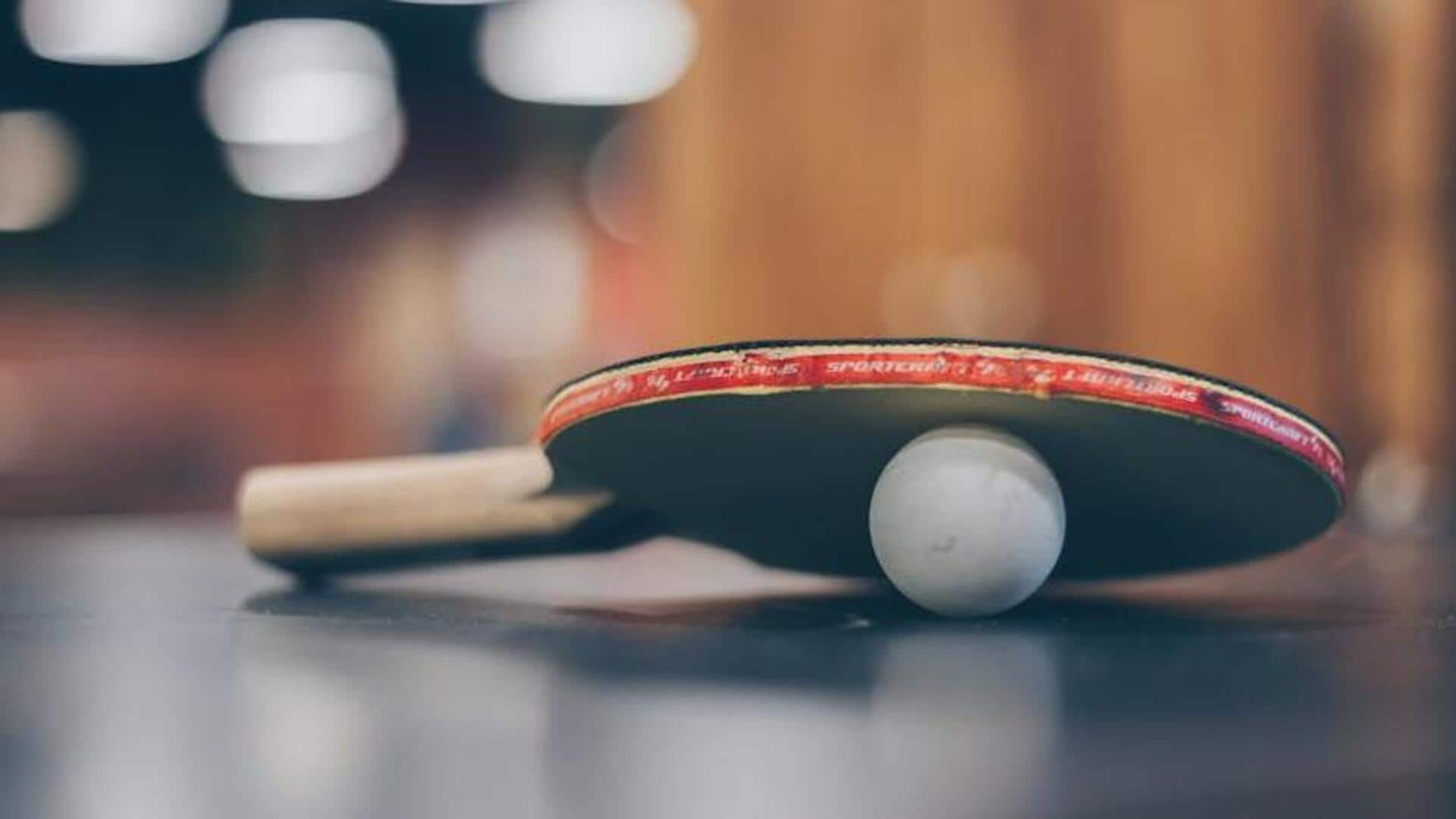
Balance and reflexes: Fencing vs. table tennis benefits
What's the story
Looking for physical activities that improve balance and reflexes? Look no further than fencing and table tennis!
Both sports require agility, precision, and rapid decision-making, providing a combination of physical exertion and mental stimulation.
Read on to discover the unique benefits of each activity, and learn how they can enhance your balance and reflexes.
Cognitive boost
Enhancing cognitive skills through fencing
Fencing is frequently referred to as physical chess because it's all about strategy.
You have to predict what your opponent is going to do while simultaneously planning your own moves.
This constant mental gymnastics increases cognitive flexibility, making you a better problem-solver with faster reaction times.
Research shows that regular fencing training can improve attention span and memory retention by 10%.
Reflex enhancement
Table tennis: A fast-paced reflex workout
The high-speed nature of table tennis requires excellent hand-eye coordination and the ability to make reflex responses in a split second.
Players need to rapidly respond to the incoming ball and accurately return it across the table, this over time enhances reflex speed.
Frequent players exhibited a 20% quicker response time than individuals who do not participate in such fast-paced sports.
Physical health
Physical health benefits of fencing
Fencing is a whole-body workout that enhances cardiovascular health, muscle strength, flexibility, and balance.
The fast-paced lunging and retreating movements in fencing work multiple muscle groups at once while also improving core stability, which is essential for maintaining balance during quick changes of direction.
Plus, you can burn up to 400 calories in an hour of fencing, making it a fun way to manage your weight.
Mental wellness
Mental well-being through table tennis
Aside from the physical benefits, table tennis also provides a powerful stress-reliever and mood enhancer.
By getting your heart pumping, it triggers your body to release endorphins, the body's natural feel-good hormones.
The concentration needed during a match can also act as a form of mindfulness or meditation, allowing players to momentarily forget about their day-to-day worries and focus solely on the game.
Getting started
Accessibility: Getting started with either sport
Both fencing and table tennis are globally accessible sports, open to beginners regardless of age or fitness level.
Initial costs vary; table tennis equipment is inexpensive, with options as low as $30 for paddles and balls.
Beginner fencing gear, on the other hand, starts around $150.
Importantly, most clubs provide equipment for beginners, eliminating the need for a major upfront investment.